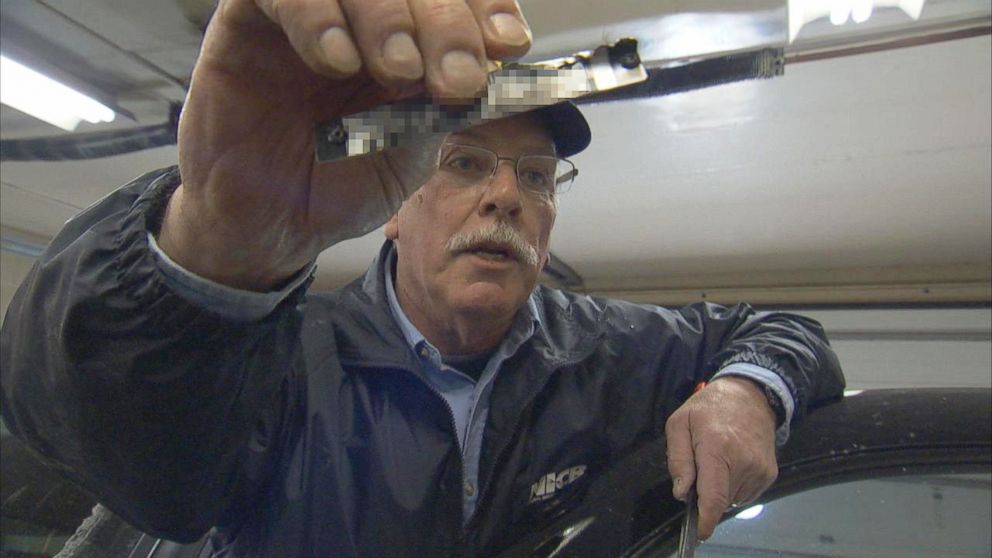VIN Cloning: How Thieves Can Steal Your Car's Identity
— -- Every year there are 700,000 car thefts in the United States, according to the FBI. Experts say many of those stolen cars are chopped up and sold for parts, but there's another way of selling a stolen car that’s even more profitable for car thieves.
It's called VIN Cloning, and it's a sophisticated scheme, according to the National Insurance Crime Bureau (NICB) and Carfax, a company which makes vehicle history reports.
Here’s how it works: thieves steal a car. Then to mask the theft, they take a vehicle identification number or VIN number, from another similar make and model of car and make counterfeit VIN plates (see photo) that they will install onto the stolen car.
That's the big problem with VIN cloning is it leaves several innocent victims in its wake.
One of those victims was Mike Cella, a retired school teacher and football coach. Last November he went to trade in his 2008 GMC Yukon Denali for a new one, but received shocking news about his SUV instead.
A car dealer in Massachusetts said he couldn’t give Cella the full "Blue Book" trade-in value for his truck because a Carfax report showed that it had been in four accidents.
"I looked at him and said, ‘What are you nuts?’” Cella, 64, told ABC News. "He says, 'Well, your car shows up in Wisconsin.'"
Four accidents? Wisconsin? Cella knew something strange was going on.
It was. It turns out that over seven years ago, according to West Palm Beach County Sheriff's office, two thieves stole a 2007 GMC Yukon Denali similar to Cella's. Later on, thieves cloned a copy of Cella's VIN number and put it on the stolen Yukon Denali to mask the theft. The car was sold and switched several hands, and over the past seven years it’s been in four accidents, according to its Carfax report.
"It's a very expensive crime and there's a whole bunch of victims involved here," NICB Senior Special Agent Buzz Burzynski told ABC News.
The stolen Yukon Denali finally ended up in the hands of a woman named Misty, who asked that her last name be withheld. She unknowingly bought the SUV from an equally-duped dealership in a small town in Wisconsin –- and it has the identical VIN number as Cella’s truck. Two trucks, one VIN.
"It’s just crazy that something like this happens in a small town," Misty said.
In most states, drivers like Misty who buy the stolen clone are left holding the bag after the vehicle is seized by police.
"After the police take your vehicle, it’s your problem," Burzynski said. "You lost your car. You lost your money. So sorry for you. You have to get an attorney and try to be made whole by the people who sold the vehicle to you.”
But lucky for Misty, Wisconsin law mandates that the car dealer who sells someone a car with a stolen VIN number must pay the customer back, according to the NICB.
The people behind the West Palm Beach Denali theft have not been identified.
"I've got to give them credit though. The way they did it is pretty smart," says Cella. "Pretty clever."
Clever or not, buying a clone can be avoidable. Here are some helpful tips to help protect yourself:
Check the VIN in multiple places on the car for mismatches or signs of tampering
Make sure the seller’s name and VINs match on all vehicle docs (title, registration, insurance, etc.)
Get a vehicle history report such as Carfax. Investigate further if something fishy comes up.




